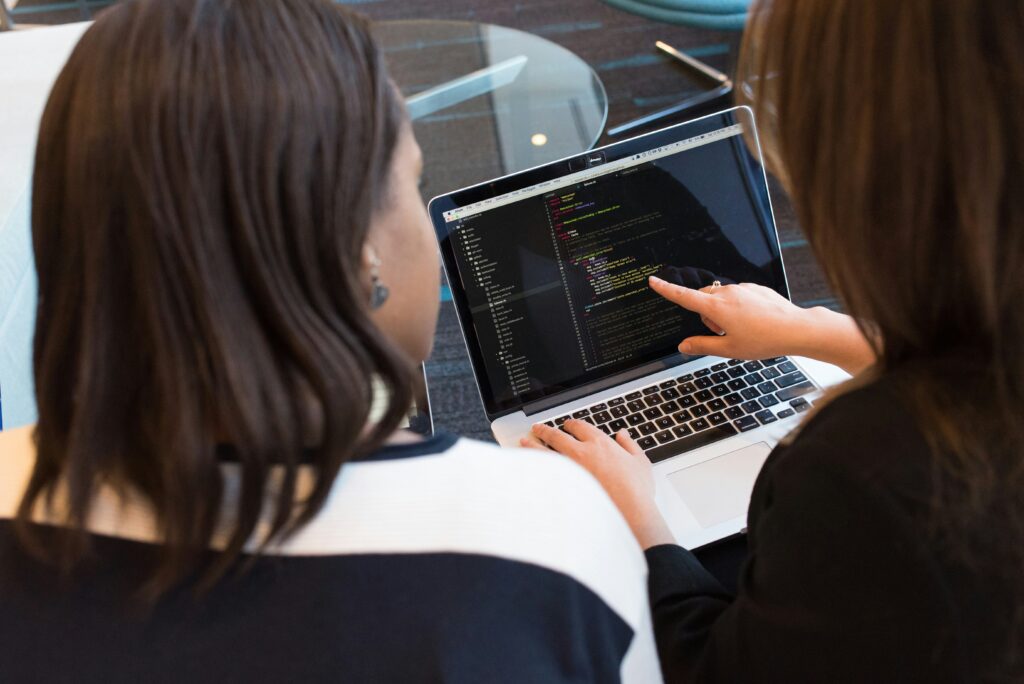
The quest for privacy, security, and an open internet is more crucial than ever. Amidst this battle, a group of remarkable women stands out, not just for their technical prowess but for their unwavering commitment to these causes. Today, let’s dive into the lives and contributions of these tech activists, whose actions and voices inspire change and challenge the status quo. By the end of this journey, you’ll be motivated to follow their leads, engage in meaningful dialogues, and perhaps, join the movement for a safer, more inclusive online world.
The Frontliners of Digital Privacy and Security

Yan Zhu: The Privacy Advocate
Yan Zhu, known on Twitter as @bcrypt, is a beacon of inspiration for anyone passionate about online privacy. With a Twitter handle reflecting her interest in cryptographic security, Yan’s work, especially with the EFF on projects like Privacy Badger and HTTPS Everywhere, showcases her dedication to making the internet a safer place. Through her efforts, she has become a leading figure in software privacy, reminding us that security is not just a feature but a fundamental right.
Jessy Irwin: The Infosec Communicator
Jessy Irwin, or @jessysaurusrex on Twitter, breaks down complex security issues into digestible, relatable content. Her unique approach, often infused with humor and emoji, makes the daunting world of information security accessible to all. As a speaker at global conferences and universities, Jessy champions the importance of robust infosec practices, proving that education and engagement are key to enhancing our digital defenses.
Yael Grauer: The Tech Journalism Pioneer
Through her incisive writing, Yael Grauer (@yaelwrites) sheds light on the intersection of technology and privacy. Her articles, featured on platforms like Motherboard, Forbes, and Ars Technica, delve into the intricacies of digital rights and the impacts of technology on society. Yael’s work, informed by a keen sense of curiosity and justice, encourages us to question and understand the digital world around us.
Sarah Jamie Lewis: The Dark Web Explorer
Sarah Jamie Lewis, tweeting as @SarahJamieLewis, is not one to shy away from the darker corners of the internet. Her project, OnionScan, is a pioneering effort to map the dark web and its vulnerabilities. Sarah’s research into anonymity and privacy online underscores the importance of safeguarding our digital identities, pushing the boundaries of what we know about the hidden parts of the internet.
Chelsea Manning: The Whistleblower for Transparency
Once known as @xychelsea, Chelsea Manning‘s story is one of courage and controversy. Her decision to release a trove of U.S. diplomatic and military documents spotlighted global injustices, sparking debates on transparency, ethics, and the right to information. Despite the personal cost, Chelsea’s actions continue to inspire discussions about the role of whistleblowers in society.
Alexandra Elbakyan: The Access Crusader

Hailing from Kazakhstan, Alexandra Elbakyan (@ringo_ring) challenged the gatekeepers of knowledge by creating Sci-Hub, a project that bypasses paywalls to provide free access to scientific research. Alexandra’s mission highlights the ongoing struggle for open access to information, reminding us that knowledge should be a shared, not a commodified, resource.
Isis Agora Lovecruft: The Encryption Expert
As a driving force behind the Tor Project and former contributor to Open Whisper Systems, Isis Agora Lovecruft (@isislovecruft) has been at the forefront of efforts to secure online communication. Her outspoken stance against FBI harassment underscores the challenges faced by those who fight for digital rights against powerful adversaries.
Eva Galperin: The Malware Slayer
Eva Galperin (@evacide), with her role at the EFF and as an advisor to the Freedom of the Press Foundation, focuses on the intersection of technology and human rights. Her research into malware and development of resources like the Digital First Aid Kit equip activists, journalists, and defenders with the tools they need to protect themselves online.
Julie Borowski: The Voice for Privacy
Julie Borowski (@JulieBorowski), a YouTube personality and political activist, brings a refreshing perspective on privacy and technology. Her candid discussions on current affairs and privacy rights emphasize the importance of individual freedom in the digital age, encouraging viewers to think critically about the role of technology in our lives.
Your Voice Matters Too
As we spotlight these incredible women in tech activism, we’re reminded of the power of individual action. Whether it’s through coding, writing, speaking, or simply engaging in online communities, each of us has the potential to contribute to a more secure, open, and equitable internet. Let’s draw inspiration from these leaders and ask ourselves: How can we, too, make a difference?
Engage, Learn, and Advocate
- Follow their leads: Join the conversation on platforms like Twitter and beyond. Share, comment, and engage with the content these activists provide.
- Educate yourself and others: Knowledge is power. Use resources available online to understand the issues and spread awareness within your community.
- Support projects and initiatives: Many of these activists are involved in projects that rely on community support. Consider donating or volunteering your skills.
Conclusion
In the realm of tech activism, women are not just participating; they’re leading the charge. Their stories are a testament to the impact that determined individuals can have on shaping a better digital future. By following their example, engaging with their work, and contributing in our own ways, we can all be part of the movement toward a more inclusive, secure, and open internet.
Remember, change starts with us. Let’s make it happen, together.
FAQs
- How can I contribute to internet privacy and security?
- Stay informed about digital rights issues, use secure communication tools, support privacy-focused organizations, and advocate for policies that protect online privacy.
- Where can I learn more about encryption and internet security?
- Explore resources offered by organizations like the EFF, attend workshops or webinars on cybersecurity, and follow experts on social media for the latest discussions and updates.

